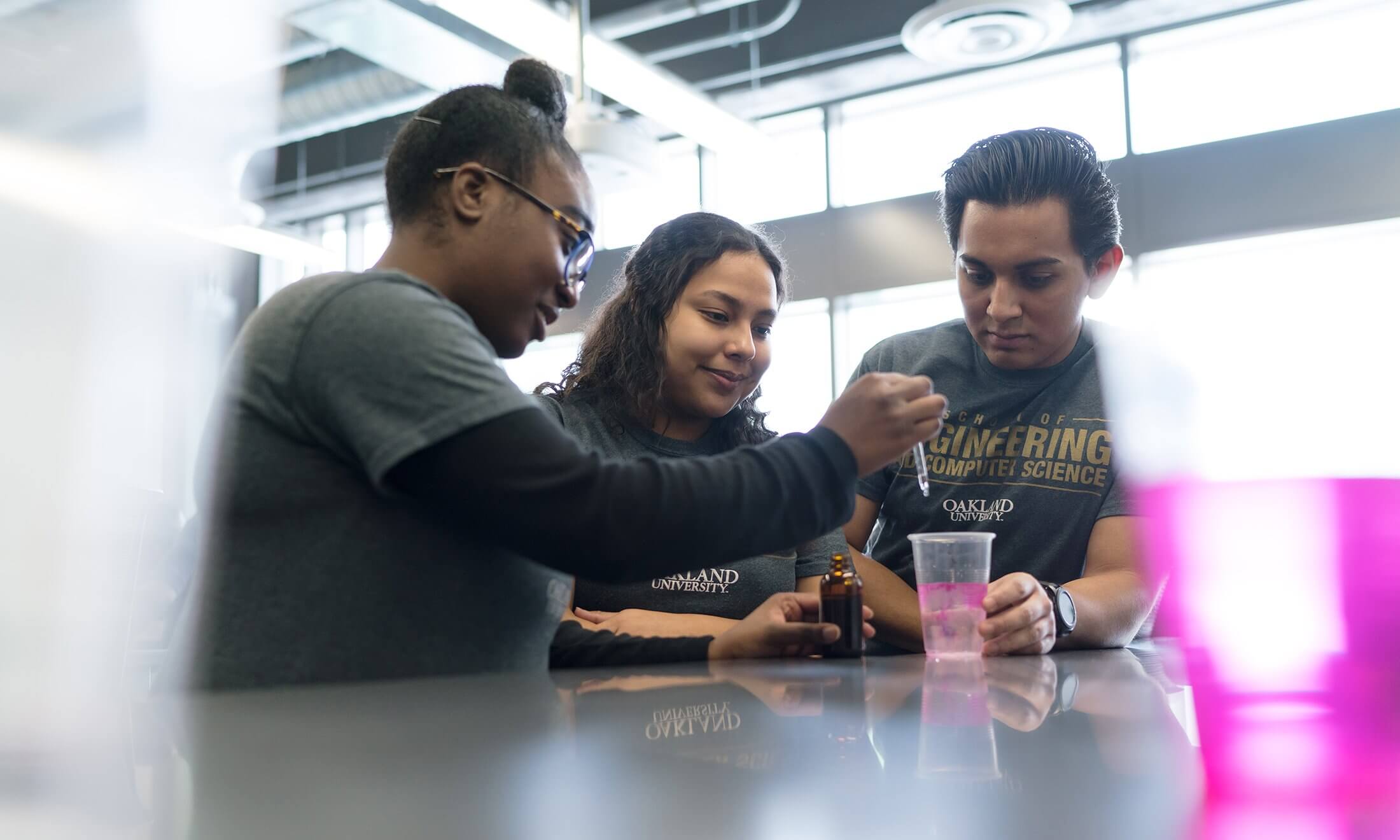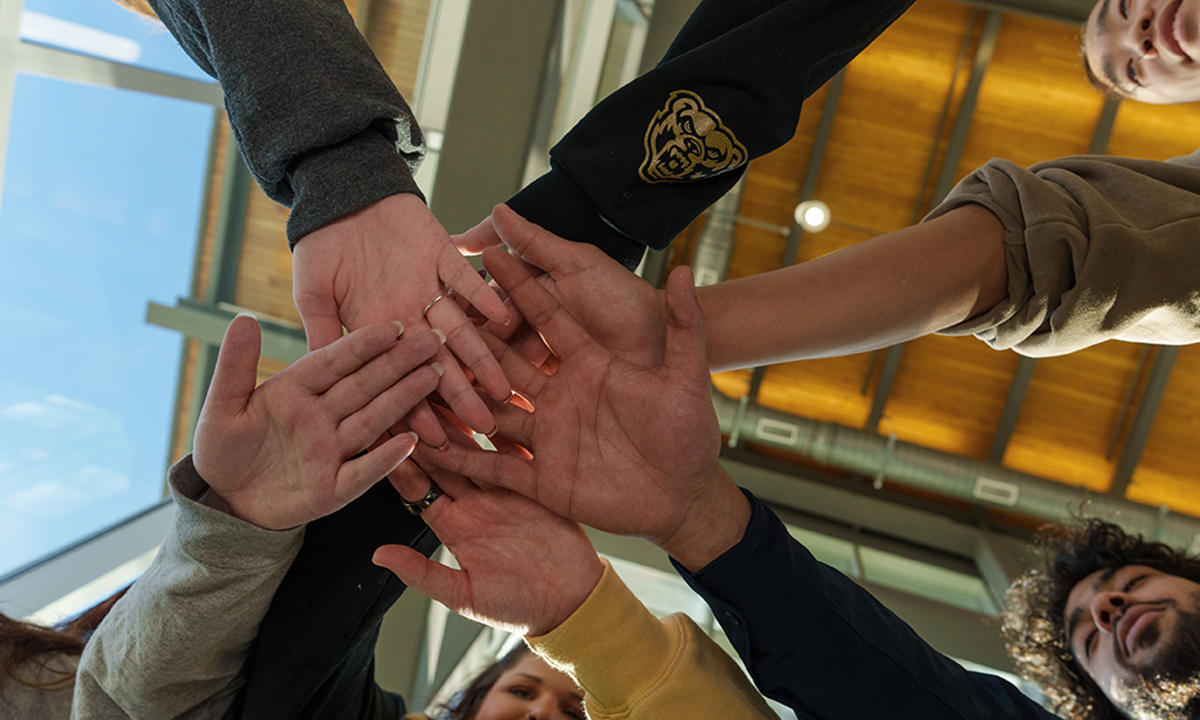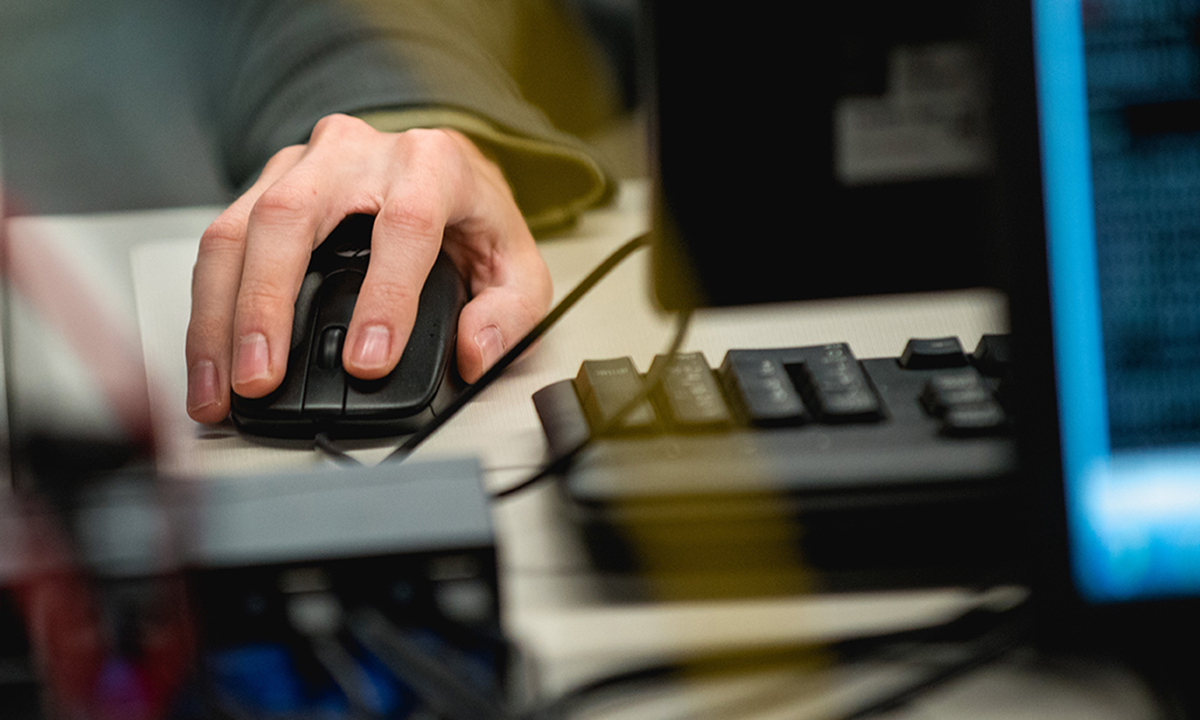Paying it Forward
Students who attend SECS's Outreach Program embark on a journey of growth and self-discovery
For Pontiac International Technology Academy graduates Rubi Rodriguez, Jade Humphrey and Donovan Hernandez, this journey has come full circle. Coming to SECS from the OU-Pontiac STEM Camp, the three upperclassmen are now also employees of the SECS Outreach Program, paying it forward by working with underprivileged and underrepresented youth.
“Children shouldn’t fear their imagination of creating something that they believe will change the world. Children shouldn’t believe that there are limits,” says Rodriguez, an OU graduating senior, about her empowering experience with the SECS Outreach Program.
Growing up in Pontiac in a Hispanic family, the fourth child of five, Rodriguez knew firsthand how limited educational opportunities could be for minority students. So, when OU-Pontiac STEM Camp was offered to her as a high school student, she was all in.
“For someone like me, who likes science and engineering, it was an incredible opportunity. Not every high school student receives it, and I was fortunate that I did,” Rodriguez says.
Initially called “OU Can Do It!,” the camp was created by Chris Kobus, Ph.D., SECS director of outreach, recruitment and retention, in partnership with Pontiac Schools. At first, the camp was two weeks of half-day workshops, but by 2013, it was a four-week summer camp exploring all engineering disciplines.
“The goal of the camp was to expose Pontiac youth to a STEM career path. Financial aid was also available to them. We hoped that most of the participants would choose a STEM path and some might choose OU to get there,” Dr. Kobus says.
Rodriguez and OU juniors, Humphrey and Hernandez, certainly credit the OU-Pontiac camp with giving them a head start in considering their path to college.
“I wanted to take advantage of the opportunities that my parents didn't have. Neither of them even finished high school,” explains Hernandez, a mechanical engineering major. “The atmosphere of the camps definitely reeled me in. It was a place where curiosity and trials were encouraged.”
Jade Humphrey, who now majors in biology, says that OU was the only university that reached out to the schools in Pontiac. “I felt that we mattered to them. The camp made it possible for me to learn more about engineering and the exciting options SECS offered in this field,” she adds.
Being given the opportunity to experience the life-changing power of education, the three students are all about giving the same opportunity to others.
“Just taking the engineering courses at OU and attending activities on campus make me realize that I am still a minority as a Hispanic female. Programs that work with minorities to uncover their potential make me want to help, too; I want to help the youth of my community,” Rodriguez says.
Hernandez, who has been a student employee for the SECS Outreach Program since he was enrolled at OU, developed his own modules to teach in the Detroit Area Pre-College Engineering Program (DAPCEP) PAAMEE (Preparing African American Males for Energy and Education). He is the student leader, teaching cohorts of Detroit students that come to campus as Saturday commuters.
“They remind me of myself as a young student who had a lot of potential, but wasn’t able to do anything with it without the right outlet. Being able to give other kids the same experience that I had years ago is what makes me really proud,” says Hernandez, who was recently recognized with the Keeper of the Dream Award for his contributions to interracial understanding and goodwill through his work with DAPCEP.
For the three students, working on SECS Outreach Program initiatives has been an important life experience that helped them grow personally and professionally.
Humphrey recalls that during her first summer working in the program, she taught electrical engineering to a group of middle schoolers and one of the children was very intrigued by it. When, two years later, she saw him again, he was the lead electrical member of his robotics team. “That meant a lot to me to see that I was able to inspire someone,” Humphrey says.
Hernandez remembers multiple experiences with minority children who could identify with his Hispanic background. “Many times, they are shy as they feel a little left out. Seeing their faces light up when I help them do whatever activity I’m teaching while speaking their native language made me realize how important it is to understand who people are,” he explains.
For Rodriguez, working with the SECS Outreach Program was a turning point in her decision to change her major from engineering to communication. “To become more vocal in my community and to help shine the light on other students, who, like me, choose to break the stereotype of Pontiac students, I want to be more connected with Pontiac through the Pontiac Initiative,’’ Rodriguez says.
Currently, the SECS Outreach Program engages over 4,000 K-12 students, who come to OU for summer camps, STEM field trips or math and science readiness workshops.
“The Outreach Program has grown greatly over the last decade, aided by the new Engineering Center, where we have more space for programming. A good number of our participants are underrepresented and underserved students. When some of these students come to OU and become part of our staff so that they can encourage the next generation, it is a true pleasure to witness,” says Dr. Kobus.
As they look forward to their graduation, Rodriguez, Humphrey and Hernandez know that a child’s success is often one caring adult away. For them, the SECS Outreach Program was the caring adult that opened up a whole new world of opportunities.

 May 07, 2020
May 07, 2020
 By Arina Bokas
By Arina Bokas



